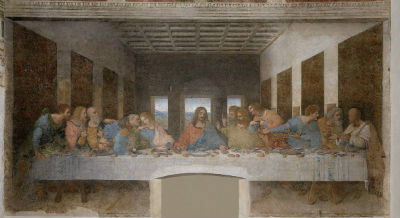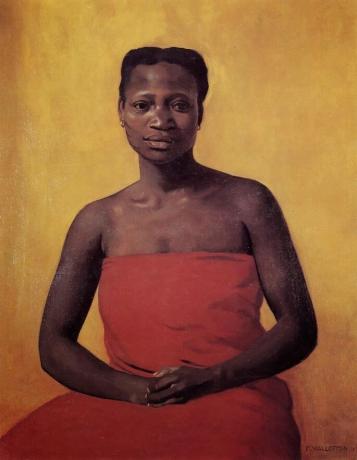Fernão Lopes was a Portuguese writer responsible for the beginning of the humanist movement in Portugal. He is considered the “father of Portuguese historiography” and one of the main figures in medieval literature.
His election as the main guard of Torre do Tombo in 1418, became the starting point for humanism in Portugal.
At that time, he was responsible for the Portuguese royal archive.
Biography

Born at the end of the 14th century (between 1380 and 1390), Fernão Lopes was probably born in Lisbon, the capital of Portugal. Although there is little information about his life, it is believed that his origins are humble.
However, during his lifetime he served the Portuguese crown as a scribe and chronicler, which guaranteed him a better position.
This is because Fernão was very concerned about reporting the history of Portugal, being, therefore, one of the great renovators of Portuguese historiography.
His impartial view of the facts was, without doubt, one of his greatest contributions. This is because the writer had the intention of separating the legends from the real facts and also giving priority to the people, to the detriment of the idealized vision of kings and rulers.
As main chronicler of the Kingdom of Portugal he was responsible for writing the narratives of kings. Elected in 1418 as main guard at Torre do Tombo in Lisbon, Fernão remained in office until 1454.
It is known that he married and had a son who bore him a bastard grandson. Although his death is not certain, it is likely that Fernão died in Lisbon in 1460, at around 80 years of age.
Curiosity
Given his great importance to the country, Fernão Lopes, who was D. Duarte received 14 thousand réis a year from this in recognition of his work. In addition, he was awarded the title of vassal of el-king (1434). Note that the vassal is an extremely trustworthy person of the king.
Works and features
With a peculiar literary style, Fernão Lopes was a landmark in the medieval literature of his time. That's because he ended up leaving aside some protagonisms, bringing out more popular characteristics.
Through their texts, it is easy to identify this characteristic that is highlighted through a more colloquial language. It was in this way that Fernão Lopes won many admirers in his time.
The Portuguese writer was well known for his historical chronicles. Although historiographic prose has appeared earlier, in the troubadour movement, it reached its apogee in Humanism with the figure of Fernão Lopes.
The main characteristic of this type of work is the historical content it carries, since it reports real facts.
The big difference is that Fernão managed to unite history with literature. Thus, he produced several works through a simple language full of dialogues. Among them, the following stand out:
- Chronicle of El-Rei D. Peter I (1434)
- Chronicle of El-Rei D. Fernando (1436)
- Chronicle of El-Rei D. John I (1443)
Excerpt from the “Chronicle of El-Rei D. John I"
In order to better understand the language used by the writer, here is an excerpt from his work:
“Prologue reasons of the author of this work, before he talks about the Master's deeds.
Great leave gave the affection to many, who had the charge of ordering stories, especially those of the Lords, in whose mercy and land lived, and where his former grandparents were born, being very favorable to him in the retelling of his made. And such favor, like this, is born of worldly affection, which is not, save conformity of some thing to man's understanding.
As soon as the land in which men, for a long time and custom, were created, generates such a conformity between the understanding, and it, that having to judge something of theirs like this in praise, as on the contrary, is never directly recounted by them, because praising her, they always say more of that, and if in another way do not write their losses so minutely, as they happen, another thing still generates this conformity and natural inclination, according to d'algnns sentence, that the The crier of life is fame, receiving food, for the body, blood, and spirits generated from so many journeys have such a similarity among those that causes this conformity. Some others had that it descended in the seed, in the time of generation, which provided for such a guise that which it is gracious to, that this conformity remains to him, also concerning the land, as of its divisions, and it seems that Tu-lio felt it, when he came to to say:
We are not born to ourselves, because one part of us has the land, and the other the kin; and but man's judgment concerning such a land, or people recounting their deeds, always copes.
This worldly affection caused some historians, who the deeds of Castella, with those of Portugal, wrote, since men of good authority were, to deviate from the true road, and to reap by half-deep excuses, because the dwindling lands of which they were at certain steps are clearly not seen, especially in the great madness, that the most virtuous King of good memory D. João, whose regiment and reign follows, happened to the noble and powerful king D. João de Castella, putting part of his good deeds out of the praise he deserved, and evading some others in order to they didn't happen, daring to publish this in the life of taes who were well-regarded companions from all over the world. contrary."
See too:
- Humanism
- Characteristics of Humanism
- The Language of Humanism
- Historiographic Prose
- Medieval Literature
- Portuguese Literature
Learn more about Fernão Lopes' time with this video:



